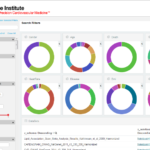AstraZeneca
See the following -
Across Pharma, Few Open Arms For Trial Data Sharing
Industry inches toward consensus on limited sharing as EMA, GSK press for open access. Read More »
- Login to post comments
Bio-IT World Announces the Winners of Its Tenth Annual Best Practices Awards
Bio-IT World announced the winners of its tenth annual Best Practices Awards competition this morning in a plenary session at the 2014 Bio-IT World Conference & Expo in Boston. Grand prize winners were named in five life sciences categories highlighting best practices in clinical trial IT, research infrastructure, bioinformatics, cloud computing and data management from AstraZeneca and Tessella, U-BIOPRED, the Pistoia Alliance, Baylor College of Medicine, and Genentech. Read More »
- Login to post comments
Crowdsourcing a Better Prostate Cancer Prediction Tool
Knowing the likely course of cancer can influence treatment decisions. Now a new prediction model published today in Lancet Oncology offers a more accurate prognosis for a patient's metastatic castration-resistant prostate cancer. The approach was as novel as the result - while researchers commonly work in small groups, intentionally isolating their data, the current study embraces the call in Joe Biden's "Cancer Moonshot" to open their question and their data, collecting previously published clinical trial data and calling for worldwide collaboration to evaluate its predictive power...
- Login to post comments
Doctors Given Meals by Drug Makers Prescribed More of Their Pills
Doctors who were fed meals costing even less than $20 later prescribed certain brand-name pills more often than rival medicines, according to a new analysis published on Monday of a federal database. And in most cases, costlier meals were associated with still higher prescribing rates for Medicare Part D drugs made by the same companies that provided the food. The findings, published in JAMA Internal Medicine, are likely to intensify an ongoing debate over the extent to which ties between drug makers and doctors unduly influence medical practice and the nation’s health care costs...
- Login to post comments
Drugs Companies Buy NHS Patient Data, Register Reveals
Some of world's biggest pharmaceutical companies have bought NHS patient data, a new register has revealed. Drugs corporations including Bayer, Baxter, AstraZeneca and Roche are among dozens of private firms sold information, as well as Bupa, the healthcare provider.
- Login to post comments
Drugs You Don't Need For Disorders You Don't Have
One evening in the late summer of 2015, Lisa Schwartz was watching television at her Vermont home when an ad for a sleeping pill called Belsomra appeared on the screen. Schwartz, a longtime professor at Dartmouth Medical College, usually muted commercials, but she watched this one closely: a 90-second spot featuring a young woman and two slightly cute, slightly creepy fuzzy animals in the shape of the words “sleep” and “wake”...
- Login to post comments
European Bioinformatics Institute (EMBL-EBI) ChEMBL 20 incorporates the Pistoia Alliance’s HELM annotation
 The European Bioinformatics Institute (EMBL-EBI) has released version 20 of ChEMBL, the database of compound bioactivity data and drug targets. ChEMBL now incorporates the Hierarchical Editing Language for Macromolecules (HELM), the macromolecular representation standard recently released by the Pistoia Alliance.
The European Bioinformatics Institute (EMBL-EBI) has released version 20 of ChEMBL, the database of compound bioactivity data and drug targets. ChEMBL now incorporates the Hierarchical Editing Language for Macromolecules (HELM), the macromolecular representation standard recently released by the Pistoia Alliance.
- Login to post comments
Funds Crunch Hits India's Drug Development Project
Lack of funds is threatening the smooth progress of India’s unique Open Source Drug Discovery (OSDD) project, a first of its kind attempt to develop drugs for neglected diseases, when it is entering a crucial phase of research. Prime Minister Manmohan Singh had in February announced that OSDD, the pet project of the Council of Scientific and Industrial Research (CSIR), had identified a lead (potential drug candidate) for tuberculosis (TB).
- Login to post comments
I.B.M. Using Bits of Watson for Drug Research
The ingredients that went into the Watson arsenal are steadily finding their way into I.B.M. products. For example, WellPoint, the big health insurer, is trying out a system that uses Watson-style software to reduce redundant medical tests.
- Login to post comments
Is the American Heart Association a Terrorist Organization?
 A few days ago, the AHA stole the attention of headlines across the globe with a report that sounded like it was straight out of the 1990s: Dietary Fats and Cardiovascular Disease: A Presidential Advisory From the American Heart Association. In this report, the AHA doubled down on their attacks against coconut oil and saturated fat. Frank Sacks, lead author on the report, reportedly said that he has no idea why people think coconut oil is healthy...
A few days ago, the AHA stole the attention of headlines across the globe with a report that sounded like it was straight out of the 1990s: Dietary Fats and Cardiovascular Disease: A Presidential Advisory From the American Heart Association. In this report, the AHA doubled down on their attacks against coconut oil and saturated fat. Frank Sacks, lead author on the report, reportedly said that he has no idea why people think coconut oil is healthy...
- Login to post comments
King's College Accelerates Synthetic Brain 3D Image Creation Using Open Source AI Models and Software Powered by Cambridge-1 Supercomputer
 King College London, along with partner hospitals and university collaborators, unveiled new details today about one of the first projects on Cambridge-1, the United Kingdom's most powerful supercomputer. The Synthetic Brain Project is focused on building deep learning models that can synthesize artificial 3D MRI images of human brains. These models can help scientists understand what a human brain looks like across a variety of ages, genders, and diseases. The AI models were developed by King's and NVIDIA data scientists and engineers as part of The London Medical Imaging & AI Centre for Value Based Healthcare research funded by UK Research and Innovation and a Wellcome Flagship Programme (in collaboration with University College London).
King College London, along with partner hospitals and university collaborators, unveiled new details today about one of the first projects on Cambridge-1, the United Kingdom's most powerful supercomputer. The Synthetic Brain Project is focused on building deep learning models that can synthesize artificial 3D MRI images of human brains. These models can help scientists understand what a human brain looks like across a variety of ages, genders, and diseases. The AI models were developed by King's and NVIDIA data scientists and engineers as part of The London Medical Imaging & AI Centre for Value Based Healthcare research funded by UK Research and Innovation and a Wellcome Flagship Programme (in collaboration with University College London).
- Login to post comments
Microsoft Makes Cloud-Based Biological Research Tool Open Source
 Bio Model Analyzer, a Microsoft cloud-based tool that biologists can use to model cell interactions and communications, is now available as open-source on GitHub under a MIT license. Researchers use Bio Model Analyzer (BMA) to create computer models that can compare the processes within healthy and diseased cells.
Bio Model Analyzer, a Microsoft cloud-based tool that biologists can use to model cell interactions and communications, is now available as open-source on GitHub under a MIT license. Researchers use Bio Model Analyzer (BMA) to create computer models that can compare the processes within healthy and diseased cells.
- Login to post comments
Precision Medicine Platform Now Open for Collaborative Discovery about Cardiovascular Diseases
 The American Heart Association Precision Medicine Platform — a global, secure data discovery platform, recently developed in collaboration with Amazon Web Services (AWS) — is now open for use. Researchers, physicians, computational biologists, computer engineers and trainees from around the globe can leverage this cloud-based resource to access and analyze volumes of cardiovascular and stroke data to accelerate the care of patients at risk of the number one killer in the United States and a leading global health threat...
The American Heart Association Precision Medicine Platform — a global, secure data discovery platform, recently developed in collaboration with Amazon Web Services (AWS) — is now open for use. Researchers, physicians, computational biologists, computer engineers and trainees from around the globe can leverage this cloud-based resource to access and analyze volumes of cardiovascular and stroke data to accelerate the care of patients at risk of the number one killer in the United States and a leading global health threat...
- Login to post comments
Research Symbiosis Makes Mathematical Crystal Ball to Gaze into Future of Prostate Cancer Treatment
 The chemotherapy docetaxel is widely accepted as a standard therapy for metastatic castration-resistant prostate cancer. But 10-20 percent of patients will have adverse side effects that force discontinuation of treatment. These patients may have been better off with another treatment in the first place, but who’s to know before trying the drug which patients will go on to experience debilitating side effects? A crowdsourced competition asked this as an open question. Today in the Journal of Clinical Oncology Clinical Cancer Informatics, competition organizers and participating teams report their findings...
The chemotherapy docetaxel is widely accepted as a standard therapy for metastatic castration-resistant prostate cancer. But 10-20 percent of patients will have adverse side effects that force discontinuation of treatment. These patients may have been better off with another treatment in the first place, but who’s to know before trying the drug which patients will go on to experience debilitating side effects? A crowdsourced competition asked this as an open question. Today in the Journal of Clinical Oncology Clinical Cancer Informatics, competition organizers and participating teams report their findings...
- Login to post comments
Sequencing, cloud computing, and analytics meet around genetics and pharma Bio-IT World Shows What is Possible and What Is Being Accomplished
Bio-IT World shows what is possible and what is being accomplished...last week I took the subway downtown and crossed the two wind- and rain-whipped bridges that the city of Boston built to connect to the World Trade Center. I mingled for a day with attendees and exhibitors to find what data-related challenges they’re facing and what the latest solutions are. Here are some of the major themes I turned up...
- Login to post comments